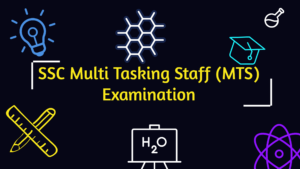GATE Exam is jointly administered by the Indian Institute of Science (IISc) and seven Indian Institutes of Technology (IITs) on behalf of the National Coordination Board (NCB)-GATE. GATE scores are widely accepted by prestigious institutes and universities in India and abroad for admission to postgraduate programs (M.E., M.Tech, Ph.D.) in various disciplines of engineering, technology, and architecture. Read more career blogs at college49.
What does GATE Exam mean?
The Graduate Aptitude Test in Engineering (GATE) is an entrance examination conducted in India that primarily tests the comprehensive understanding of undergraduate subjects in engineering and sciences for admission into technical postgraduate programs. The GATE exam is conducted jointly by the Indian Institute of Science and seven Indian Institutes of Technologies at Roorkee, Delhi, Guwahati, Kanpur, Kharagpur, Chennai (Madras) and Mumbai (Bombay) on behalf of the National Coordination Board – GATE, Department of Higher Education, Ministry of Education (MoE), Government of India.
The GATE score of a candidate reflects the relative performance level of a candidate. The score is used for admissions to various post-graduate education programs (e.g. Master of Engineering, Master of Technology, Master of Architecture, Doctor of Philosophy) in Indian higher education institutes, with financial assistance provided by MoE and other government agencies. GATE scores are also used by several Indian public sector undertakings for recruiting graduate engineers in entry-level positions. It is one of the most competitive examinations in India. GATE is also recognized by various institutes outside India, such as Nanyang Technological University in Singapore.
GATE Exam Date
The GATE Exam is typically conducted in the month of February. However, the exact dates for the GATE Exam may vary from year to year. It is important to note that the GATE Exam dates are announced by the conducting authority well in advance.
Candidates are advised to regularly check the official GATE Exam website (gate.iitb.ac.in) or the official notification for the specific year to get the latest updates regarding the exam dates.
GATE Exam Registration
The registration process for the GATE (Graduate Aptitude Test in Engineering) Exam is conducted online. Here is a step-by-step guide on how to register for the GATE Exam
- Visit the Official Website
- Create an Account.
- Login to the Portal
- Fill in Personal Details
- Enter Communication Details
- Upload Documents
- Choose Exam Paper and Centers
- Pay the Application Fee
- Review and Submit
- Download Application Form
| Exam Year | Event | Date |
|---|---|---|
| 2023 | Release of GATE Exam Notification | September 2022 |
| 2023 | Start of Online Application | To be announced |
| 2023 | Last Date of Online Application | To be announced |
| 2023 | Request for Change in Exam City | To be announced |
| 2023 | Release of Admit Card | To be announced |
| 2023 | GATE Exam Date | To be announced |
| 2023 | Availability of Answer Key | To be announced |
| 2023 | Announcement of Results | To be announced |
| 2023 | Downloading of Scorecard | To be announced |
| 2023 | Validity of GATE Score | Three Years from Results |
The GATE Exam Eligibility Criteria
It’s important to note that these eligibility criteria are general guidelines, and specific criteria may vary slightly each year. It is advisable to refer to the official GATE Exam website or the official notification for the specific year to obtain the most accurate and up-to-date information regarding the eligibility criteria.
| Eligibility Criteria | Details |
|---|---|
| Educational Qualification | Completed or in the final year of Bachelor’s degree in Engineering/Technology/Architecture or equivalent (4 years after 10+2 or 3 years after Diploma in Engineering/Technology) from a recognized university/institution. |
| Age Limit | No age limit. Candidates of any age can apply for the GATE Exam. |
| Nationality | Open to Indian nationals as well as candidates from Bangladesh, Nepal, Sri Lanka, Singapore, Ethiopia, and the United Arab Emirates (UAE). |
| Number of Attempts | No restriction on the number of attempts. Candidates can appear for the exam multiple times, provided they meet the other eligibility criteria. |
The GATE Exam syllabus
Preparing for the GATE Exam requires a thorough understanding of the core subjects and topics mentioned in the syllabus. Candidates should focus on mastering the key concepts, solving practice questions, and referring to relevant textbooks and study materials to ensure comprehensive preparation.
| Discipline | Syllabus |
|---|---|
| General Aptitude (Common to All Papers) | Verbal Ability: English grammar, sentence completion, verbal analogies, word groups, instructions, critical reasoning, and verbal deduction. Numerical Ability: Numerical computation, numerical estimation, numerical reasoning, and data interpretation. |
| Civil Engineering | Structural engineering, geotechnical engineering, water resources engineering, environmental engineering, transportation engineering, and surveying. |
| Mechanical Engineering | Engineering mathematics, applied mechanics and design, fluid mechanics and thermal sciences, materials, manufacturing, and industrial engineering. |
| Electrical Engineering | Electric circuits and fields, signals and systems, electrical machines, power systems, control systems, and power electronics. |
| Computer Science and Information Technology | Digital logic, computer organization and architecture, programming and data structures, algorithms, theory of computation, operating systems, and databases. |
| Electronics and Communication Engineering | Networks, electronic devices, analog circuits, digital circuits, signals and systems, control systems, and communications. |
| Chemical Engineering | Process calculations and thermodynamics, fluid mechanics and mechanical operations, chemical reaction engineering, heat transfer, mass transfer, and chemical technology. |
| Aerospace Engineering | Engineering mathematics, flight mechanics, space dynamics, aerodynamics, structures, propulsion, and aerospace materials. |
The GATE Exam cuts off
The GATE (Graduate Aptitude Test in Engineering) Exam cutoff refers to the minimum score or rank that a candidate needs to achieve in order to qualify for admissions or job opportunities through GATE.
Here are a few points to understand about GATE Exam cutoff:
Discipline-wise Cutoff: The cutoff marks for GATE are different for each discipline or branch. This is because the number of candidates, the competition level, and the availability of seats or positions can vary across disciplines.
Category-wise Cutoff: GATE cutoff marks are also categorized based on different reservation categories such as General, OBC (Other Backward Classes), SC (Scheduled Caste), ST (Scheduled Tribe), and others. The cutoff may be slightly lower for reserved categories compared to the general category.
Qualifying Cutoff vs. Admission Cutoff: GATE cutoff marks can be categorized into two types – the qualifying cutoff and the admission cutoff. The qualifying cutoff is the minimum score required to pass the GATE Exam, while the admission cutoff is the score required to secure admission to specific institutes or qualify for job opportunities.
Institute-specific Cutoff: Different institutes or organizations may have their own specific cutoff marks for admissions or job opportunities through GATE. These cutoff marks can vary based on the reputation and ranking of the institute, the discipline or branch of study, and the available seats or vacancies.
Variations in Cutoff Marks: The cutoff marks can vary significantly each year based on the factors mentioned earlier. Sometimes, certain disciplines or branches may have higher or lower cutoff marks due to the specific demand in the industry or academic institutions.
The GATE Exam tips and books
Preparing for the GATE (Graduate Aptitude Test in Engineering) Exam requires a strategic approach and the right resources. Here are some tips and recommended books to help you excel in the exam:
Understand the Exam Pattern: Familiarize yourself with the GATE Exam pattern, marking scheme, and duration of the exam. This will help you plan your preparation and manage your time effectively during the actual exam.
Syllabus Analysis: Thoroughly analyze the GATE Exam syllabus for your chosen discipline. Identify the weightage of different topics and prioritize your preparation accordingly. Focus on mastering the core concepts and topics that carry higher marks.
Create a Study Plan: Develop a well-structured study plan that allocates sufficient time for each subject and topic. Divide your preparation into smaller milestones and set achievable goals. This will help you stay organized and cover the entire syllabus systematically.
Practice Previous Years’ Question Papers: Solve previous years’ question papers to understand the exam pattern, types of questions asked, and time management. This will familiarize you with the exam format and boost your confidence. Additionally, it will highlight the areas where you need more practice.
Refer to Standard Textbooks: Choose the right study material and textbooks that cover the GATE Exam syllabus comprehensively. Some recommended books for GATE preparation include:
“GATE Tutor” by Arihant Publications
“GATE Guide” by G.K. Publications
“GATE Engineering Mathematics” by Made Easy Publications
“GATE Mechanical Engineering” by R.K. Jain
“GATE Electronics and Communication Engineering” by R.K. Kanodia
Online Study Resources: Utilize online resources such as video lectures, online tutorials, and practice quizzes available on various educational platforms. These resources provide additional explanations, shortcuts, and interactive learning experiences.
Join Mock Tests and Online Test Series: Enroll in mock tests and online test series specifically designed for the GATE Exam. This will help you assess your progress, identify areas of improvement, and get acquainted with the exam environment.
Revision and Time Management: Allocate dedicated time for revision. Regularly revise the concepts, formulas, and problem-solving techniques. Practice time-bound mock tests to improve your speed and accuracy.
Note: The mentioned books are popular choices among GATE aspirants, but it’s important to choose the books that align with your specific discipline and cater to your learning style. Additionally, always refer to the latest editions of the recommended books to ensure you have the most up-to-date content and practice questions available.
The GATE Exam question papers
The GATE (Graduate Aptitude Test in Engineering) Exam question papers are valuable resources for candidates preparing for the exam. Solving previous years’ question papers can provide a better understanding of the exam pattern, types of questions asked, and the level of difficulty. Here are some key points about GATE Exam question papers:
- Official Question Papers
- Year-wise Availability
- Discipline-specific Papers
- Multiple Choice Questions (MCQs) and Numerical Answer Type (NAT) Questions
- Comprehensive Coverage
- Exam Pattern Familiarity
- Practice and Self-assessment
- Online Platforms and Coaching Institutes
GATE Exam Pattern & Test Structure 2023
Certainly! Here’s the GATE (Graduate Aptitude Test in Engineering) Exam Pattern and Test Structure for the year 2023
| Paper Code | Sections | Number of Questions | Marks per Question | Total Marks | Total Time Duration |
| AE | General Aptitude (GA) | 5 | 1 mark each | 5 marks | 3 hours |
| Engineering Mathematics (EM) | 25 | 1 mark each | 25 marks |
| Subject-Based Questions (SB) | 30 | 2 marks each | 60 marks | ||
| AG | General Aptitude (GA) | 5 | 1 mark each | 5 marks | 3 hours |
| Engineering Mathematics (EM) | 25 | 2 marks each | 50 marks |
| Subject-Based Questions (SB) | 30 | 2 marks each | 60 marks | ||
| AR | General Aptitude (GA) | 5 | 1 mark each | 5 marks | 3 hours |
| Architecture and Planning (AR) | 35 | 2 marks each | 70 marks |
| Subject-Based Questions (SB) | 30 | 2 marks each | 60 marks | ||
| BT | General Aptitude (GA) | 5 | 1 mark each | 5 marks | 3 hours |
| Engineering Mathematics (EM) | 25 | 2 marks each | 50 marks |
| Subject-Based Questions (SB) | 30 | 2 marks each | 60 marks | ||
| CE | General Aptitude (GA) | 5 | 1 mark each | 5 marks | 3 hours |
| Engineering Mathematics (EM) | 25 | 2 marks each | 50 marks |
| Subject-Based Questions (SB) | 30 | 2 marks each | 60 marks | ||
| CH | General Aptitude (GA) | 5 | 1 mark each | 5 marks | 3 hours |
| Engineering Mathematics (EM) | 25 | 2 marks each | 50 marks |
GATE Exam Highlights
| Exam Name | GATE Exam |
|---|---|
| Conducting Authority | IIT (Indian Institutes of Technology) |
| Exam Level | National Level |
| Exam Frequency | Once a year |
| Exam Mode | Computer-Based Test (CBT) |
| Eligibility | Bachelor’s degree in Engineering/Technology or Master’s degree in Science/Mathematics/Statistics/Computer Applications |
| Subjects | 27 Disciplines including Aerospace Engineering, Civil Engineering, Computer Science and Information Technology, Electrical Engineering, Mechanical Engineering, and more |
| Total Questions | 65 (including both multiple-choice and numerical answer type questions) |
| Marking Scheme | Multiple-choice questions: Correct Answer – +1 or +2 marks (varies as per question) |
| Numerical answer type questions: Correct Answer – +1 or +2 marks (varies as per question) | |
| Incorrect Answer: No negative marking for numerical answer type questions | |
| Exam Duration | 3 hours |
| Official Website | www.gate.iitb.ac.in |
1. What is the GATE exam?
The GATE exam is a national-level entrance examination conducted in India for admission to postgraduate programs in engineering, technology, and architecture, as well as for recruitment in public sector companies.
2. How can I apply for the GATE exam?
To apply for the GATE exam, you need to visit the official GATE website during the application period, fill out the online application form, upload the required documents, and pay the application fee online.
3. What is the exam pattern for the GATE exam?
The GATE exam consists of multiple-choice questions (MCQs) and/or numerical answer type (NAT) questions. The exam duration is 3 hours, and it is conducted in an online computer-based format. The syllabus and pattern may vary depending on the discipline chosen.
4. Is there any negative marking in the GATE exam?
Yes, there is negative marking for wrong answers in the MCQs section of the GATE exam. For each incorrect answer in the 1-mark MCQs, 1/3rd of the marks will be deducted, and for each incorrect answer in the 2-mark MCQs, 2/3rd of the marks will be deducted. There is no negative marking for NAT questions.
5. Can I appear for multiple papers in the GATE exam?
No, you can only appear for one paper in the GATE exam. You need to choose a single paper based on your eligibility and interests during the application process.
6. What is the validity period of the GATE score?
The GATE score is valid for three years from the date of announcement of the results. It can be used for admissions to postgraduate programs or for recruitment in public sector companies during this period.
7. Can international candidates appear for the GATE exam?
Yes, international candidates are eligible to appear for the GATE exam. However, they must fulfill the eligibility criteria specified by the conducting authority and provide valid documents such as passport, etc., for verification.




